News
-
 Plants
PlantsFrom lemons to kumquats, roots of citrus variety dug up
Citrus fruits’ lineage is traced through chloroplast DNA, revealing both maternal and paternal heritage.
-
 Health & Medicine
Health & MedicineGenes may influence placebo effect
Certain gene variants may predispose people to experience the placebo effect, which may have implications for clinical trials and personalized medicine.
-
 Environment
EnvironmentOil from BP spill probably sprayed out in tiny drops
Oil that gushed from the well in the 2010 Deepwater Horizon spill may have shattered into tiny droplets, with high pressures doing the work of dispersants.
By Beth Mole -
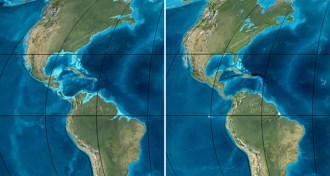 Earth
EarthMeeting of the Americas came early, study suggests
Volcanic crystals thought to have formed in Panama and found in an ancient Colombian streambed hint that North and South America may have met up roughly 10 million years earlier than once thought.
-
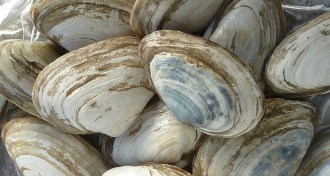 Genetics
GeneticsContagious cancer found in clams
A soft-shell clam disease is just the third example of a contagious cancer.
-
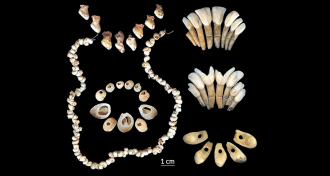 Anthropology
AnthropologyBeads suggest culture blocked farming in Northern Europe
Baltic hunter-gatherers blocked farming’s spread from south.
By Bruce Bower -
 Astronomy
AstronomyCyanides around young star signal complex organic chemistry
Abundances of cyanide compounds around a young star match those found in comets in our solar system.
-
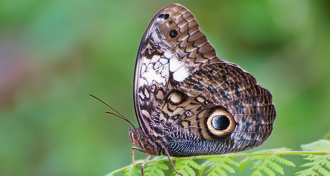 Life
LifeIt’s true: Butterfly spots can mimic scary eyes
Contrary to recent studies, the old notion that butterfly wing eyespots evoke predator eyes may not be so old-fashioned after all.
By Susan Milius -
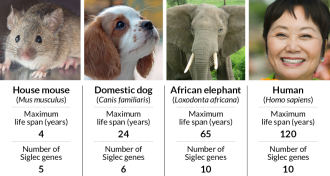 Genetics
GeneticsAnti-inflammation genes linked to longer lives
Inflammation-dampening genes fight oxidants and promote longer life spans.
-
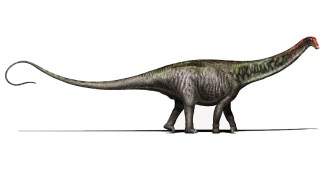 Paleontology
PaleontologyBrontosaurus deserves its name, after all
Brontosaurus belongs in a genus separate from Apatosaurus, a new study proposes.
-
 Neuroscience
NeuroscienceBrains may be wired to count calories, make healthy choices
Fruit flies appear to make memories of the calories in the food they eat, an observation that may have implications for weight control in humans.
-
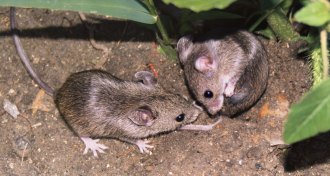 Animals
AnimalsMouse mates with similar personalities start families faster
Among monogamous mound-building mice, the more closely mates match in a tendency toward anxiety, the sooner they start having babies
By Susan Milius